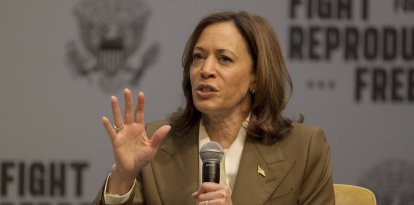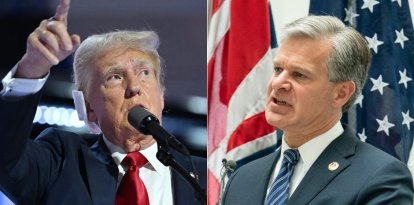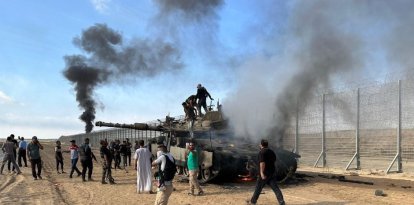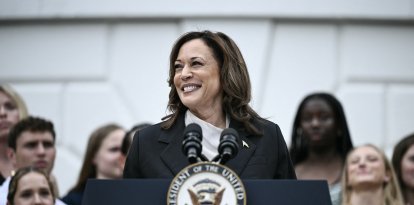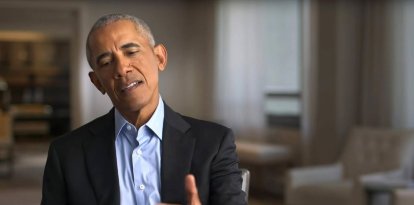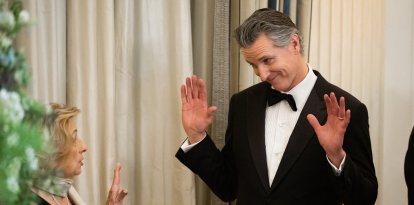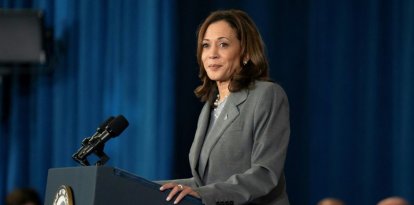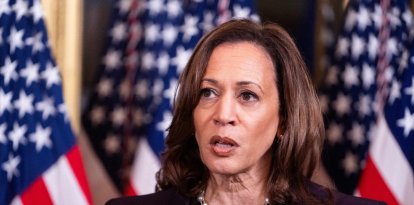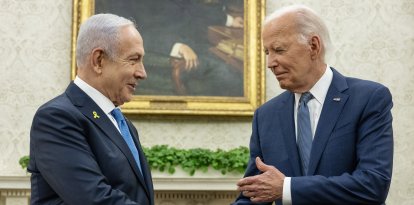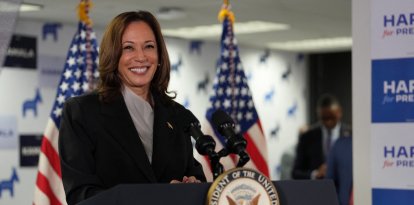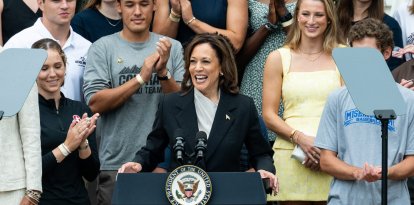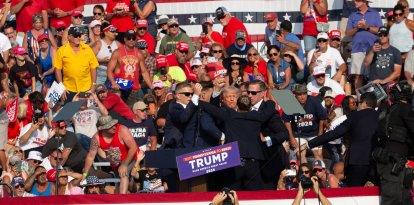Trial against Trump in New York: The former president claims the judge won't allow him to attend his son's graduation
Today, the Republican candidate became the first former president to be put on criminal trial.
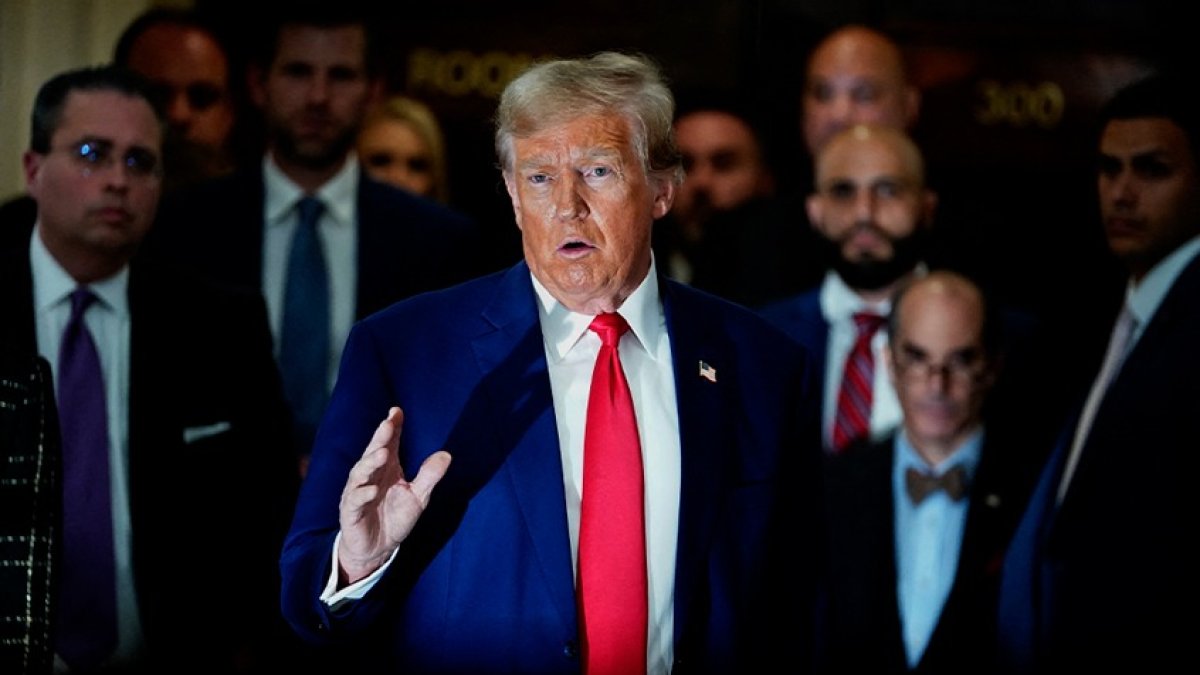
(Photo by TIMOTHY A. CLARY / AFP)
Trump has gone down in history today as the first former president to be put on criminal trial. This Monday, the difficult work of choosing a proper jury in New York to judge the Republican candidate began. Among the most striking events of the first day of this historic case is the former president's complaint that the judge won't allow him to attend his son Barron Trump's graduation.
"My son is graduating from high school. It looks like the judge will not let me go to the graduation of my son who's worked very, very hard and he is a great student. This is a scam trial," said the Republican candidate after leaving court.
The former president also pointed out that Judge Juan Merchán's order to be in court every day means electoral interference: "That I can't go to my son's graduation, or that I can't go to the United States Supreme Court. That I'm not in Georgia or Florida or North Carolina campaigning like I should be... This is about election interference."
"If you don't show up, there will be an arrest," Merchán told Trump during the first day of the trial. The judge explained that Trump had to go every day and asked him if he understood that if he did not comply with the order, there would be consequences.
What is the crime?
This case was revived eight years after the events occurred. Manhattan District Attorney Alvin Bragg decided to file it a few months before the election. Trump is charged with 34 felonies related to payments to Stormy Daniels in exchange for her silence about an alleged relationship with him. The former president has denied Daniels' allegations. His team has explained on multiple occasions that confidentiality agreements to maintain silence are given for various reasons and do not mean the accusations have occurred.
In any case, a confidentiality agreement is not illegal. Prosecutor Bragg's case is in relation to the papers and contracts through which the payments were made. Since so many years have passed, the only way Bragg was able to revive this case is to charge Trump with felonies, which means he has to prove that Trump manipulated the accounting books with "the intent to commit another crime or to aid or conceal his commission."
One of the most particular issues in this case is that in the prosecution, prosecutor Bragg did not present the second crime. Therefore, it is unknown what the underlying crime is in this case.
Jury Selection
The trial began this Monday with jury selection. New York is quite Democratic, so finding the twelve Americans who will hear the case is not an easy matter. In this process, both Trump's lawyers and those of the state interview the candidates to form the jury that will have the important task of trying a former president for the first time in the country's history.
The candidates are asked questions to determine if they have any bias or if they can act according to the law. The questions concern their political orientation, the sources of information they usually consume, and their idea of the former president, among other matters.
Some of the questions asked of potential candidates are:
Do you have any strong opinions or firmly held beliefs about whether a former president may be criminally charged in state court?
Do you have any feelings of opinions about how Mr. Trump is being treated in this case?
Can you give us your assurance that you will decide this case solely on the evidence you see and hear in this courtroom and the law as the judge gives it?
Do you have any strong opinions or firmly held beliefs about former President Donald Trump, or the fact that he is a current presidential candidate that would interfere with your ability to be a fair and impartial juror?













